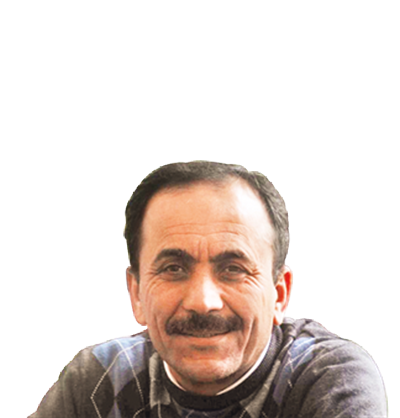Turkey had conducted an important military operation in Syria spanning Jarablus and al-Bab, and dealt a major blow to the terrorist organizations that
Turkey had conducted an important military operation in Syria spanning Jarablus and al-Bab, and dealt a major blow to the terrorist organizations that have been laying the foundation for all sorts of interventions by the U.S., and the West in general. Despite this, on July 15,2016 Turkey was subjected to an inside invasion attempt conducted by terrorist organizations.
There is no doubt that Turkey had it tough. There was activity in all corners of the region: Russia-backed Syrian leader Bashar Assad and Iran’s militia forces were launching air and land strikes on opposition forces stuck in Aleppo.
Non-national elements such as Daesh and the Fetullah Terrorist Organization (FETÖ) led to the condemnation of the country’s legitimate struggle. Even though Turkey reached out its helping hand to legitimate national opposition elements, the sinister Nationalist Intelligence Organization (MIT) incident in 2014 had struck a major blow to the national opposition that is currently forming. Despite having made major gains at the start of the war, legitimate opposition forces were surrounded from all corners. FETÖ had paralyzed Turkey and blocked the opposition’s channels opening out to the world. Though Daesh and Iranian militia seem like they are each other’s enemies, they caused the legitimate opposition to lose ground. Russia was basically raining death on them from the sky. They battled for about five years, but in the end they were cornered in Aleppo. Their resistance was entirely broken. Death rained on Aleppo during live broadcasts, in front of the world’s eyes. Those who lived would be killed by regime troops or Iranian militias. All the city’s entry and exit points were guarded. It was the darkest days, so much so that a little boy had said, “I am going to complain to God when I see Him.” They were allowed to live as a result of Turkey’s intense efforts. Those who lived were put on a bus and sent to Idlib. The legitimate opposition was defeated. But really, all of humanity had lost.
The U.S. and European countries’ withdrawal of their support showed that the aim was, after Iraq, for Syria to also lose its state identity. They would form a terror corridor along a line from Iraq to the Mediterranean, and do whatever they wanted along this line to achieve greater goals. They would open a vast area of maneuver for Israel in the south, and isolate Turkey from the Arab region in the north. Thus, they were going to strike a fatal blow to our region. However, when Turkey conducted an operation from Jarablus to al-Bab to target the terrorist organization, the Free Syrian Army (FSA) recovered again. The FSA, which acted together with Turkey, was no longer militia forces open to manipulation and it no longer incurred great losses for the sake of small objectives. Instead, it started to turn into state structures that act in a planned manner to achieve great goals. Fate may even have changed its trajectory in al-Bab. I believe the confidence of the FSA was further boosted in Afrin, which they entered together with the Turkish army. They won victory against two different terrorist organizations. Though Turkey’s support in this victory was critical, they were on the stage as the FSA and nobody could debate their share in the victory that was won.
Is the FSA’s re-organization under the “Syrian National Army,” an ordinary name change, or is it related to the great objectives of the new army? We must, of course, attach importance to the demand for freedom, yet one must not forget that this demand renders an opposition discourse inevitable, and leads to even more marginal ideas and actions. As the national army description will strengthen the idea of locals being devoted to their homeland – based on the regional axis – and unite all elements around a common aim, it indicates a state perspective. Hence, this will not give the foreigners the opportunity to exploit the local through terrorism and prevent regional alienation. We can say that the Syrian National Army name change is not a simple choice.
The Syrian National Army took a very active role in the operation on the east of the Euphrates as well. The target of this operation led by the Turkish military was again a terrorist organization that erved up the region to Western imperialism.
As can be understood from the swift progress of the operation, the troops of both armies took action with great faith and determination. The images on television also confirm this. As for sacrifice, it is the nature of such a fight. We are talking about sacrificing one’s life, is there any greater sacrifice?
Ever since the Syria war started, propaganda against Syrians in Turkey has always been dirty. Religious conservatives even joined the propaganda, especially against those who took shelter in Turkey, with embarrassing statements being made from time to time. I do not know who will be ashamed of what they did, but the children and the families of Syrian National Army soldiers who fell martyr to build peace springs in the east of the Euphrates today are guests in Turkey. Who complained about those children? Any ideas?
